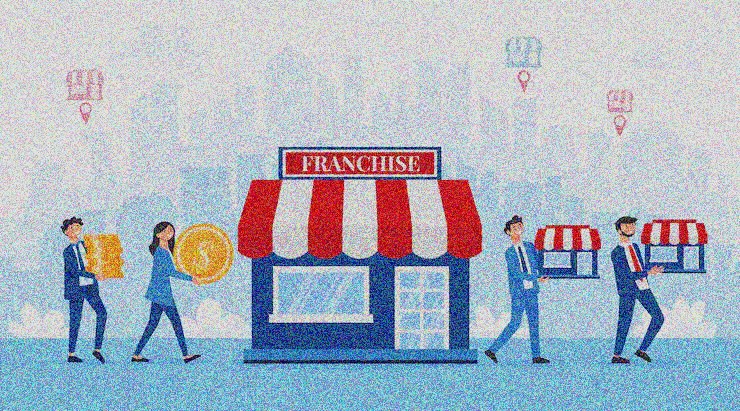Lorem ipsum dolor sit amet, consectetur adipiscing elit. Suspendisse varius enim in eros elementum tristique. Duis cursus, mi quis viverra ornare, eros dolor interdum nulla, ut commodo diam libero vitae erat. Aenean faucibus nibh et justo cursus id rutrum lorem imperdiet. Nunc ut sem vitae risus tristique posuere.
Your Choices About Your Information
First-Time Franchisees
Existing Franchisees
Multi-Unit Developers
What Franchisees Often Overlook About Leases

What Franchisees Often Overlook About Leases
When opening a franchise, securing financing is often the top priority—but the lease you sign can shape your economics just as much as your loan. The right lease terms can protect your cash flow, support your growth plans, and make future resale easier. Overlooking key provisions, on the other hand, can lead to costly surprises years down the road.
“Leases aren’t just about monthly rent,” says Samantha Holt, Director of Sales at ApplePie Capital. “The fine print can affect your costs, your flexibility to grow, and even your ability to sell your business down the road.”
Franchise attorney Yvonne Holden, who has spent nearly a decade representing franchisees in lease negotiations agrees: “Too many franchisees don’t realize the risks hidden in lease language until years later. By then, it can be very costly to fix.”
Here are some of the most common—and expensive—lease issues franchisees overlook:
1. Who Pays for What
One of the biggest surprises involves repair and maintenance obligations. If the landlord’s work items aren’t clearly incorporated into the lease, you could receive the keys to an unfinished space and be forced to cover those costs yourself.
Utility lines are another area where unclear language can create major liabilities. Many leases make tenants responsible for the “exclusive sewer line”—the stretch of pipe from the unit to the city’s main. If that line runs just outside your wall, repairs might be minor. But if it stretches across the parking lot, you could face tens of thousands of dollars in unexpected costs. “I’ve had clients actually send a camera through the sewer line before signing,” Holden says. “They discovered blockages and damage that would have been their responsibility to fix”.
2. Common Area Maintenance (CAM) Costs
CAM charges, part of your triple net (NNN) expenses, often catch franchisees off guard. Many landlords bill monthly, but some reconcile annually—resulting in a large, unexpected bill a year or two later.
Holden recommends ensuring your lease requires annual reconciliation with a set deadline so landlords can’t delay for years, and negotiating a cap on controllable CAM (typically 5–7%) to limit increases. She also notes that “non-cumulative” language prevents landlords from rolling unused increases forward into future years.
3. Tenant Improvement (TI) Allowances
Tenant allowances—the funds landlords contribute toward build-out—can be structured in ways that directly impact your financing. Some landlords pay only after you open; others offer installments tied to construction milestones, which can help if you’re self-funding.
If you’re financing TI through a lender, structure and timing are critical. “If the landlord pays in installments, that needs to be clear upfront,” Holt explains. “Otherwise, it can create problems at closing.” Smaller landlords may try to withhold or offset allowances; adding language that allows you to deduct unpaid TI from future rent (in stages) can protect you.
4. Subordination, Non-Disturbance, and Attornment (SNDA) Agreements
If your landlord has a mortgage and the lender forecloses, the lender can terminate your lease—effectively shutting down your business overnight. An SNDA ensures that as long as you’re not in default, your lease will survive a foreclosure.
Holden advises franchisees to build language into the lease requiring the landlord to obtain a “commercially reasonable” SNDA. Without it, lenders may delay or deny loan closings, and your tenancy remains vulnerable
5. Site Surveys and Build-Out Compliance
Ordering a site survey early is critical. “If you wait until after the lease is signed and something major comes up, you have no leverage,” Holden cautions.
Similarly, build-out changes must follow formal change order procedures. Deviating from approved plans—even for minor cost savings—can jeopardize your TI reimbursement.
6. Rent Commencement and Permitting Timelines
Many leases set rent commencement at a fixed number of days after signing. But permit delays can eat into your build-out period, forcing you to start paying rent before you open. Holden recommends tying rent commencement to the later of possession or permit issuance, especially in jurisdictions with long permitting timelines (e.g., parts of California or Florida). This prevents paying rent while waiting on approvals
7. Personal Guarantees and Growth
Most franchisees personally guarantee their leases, but that exposure can multiply quickly as you scale. Once you operate multiple successful units, Holden advises negotiating for corporate guarantees instead of personal ones to reduce personal risk. She also notes that some leases allow for guarantee burn-offs—e.g., release after five years without default—which can significantly limit your exposure.
8. Selling Your Business
When exiting, you’ll want assignability provisions that release both your entity and your personal guarantee once the landlord approves a qualified buyer. Landlords often resist automatic releases, so Holden negotiates net worth conditions aligned with franchisor requirements to ensure a fair standard for buyer approval.
9. Accelerated Rent Clauses
Almost every lease contains an accelerated rent clause, allowing landlords to demand the balance of the entire term’s rent if you default. “In some states these are illegal, but in many, they’re enforceable—and that can put your house on the line,” Holden warns.
If landlords won’t remove the clause, she suggests negotiating limits, such as capping liability at 6–12 months of rent, to make the risk more manageable
The Bottom Line
Lease terms have a profound impact on your franchise’s financial health. “Financing and leasing go hand in hand,” Holt emphasizes. “The smartest franchisees treat lease negotiation with the same diligence as securing capital.”
Before signing, engage both an experienced attorney and your lender. Clarifying responsibilities, building protections into the lease, and understanding financing implications upfront can save you from years of unexpected costs—and give you the flexibility to grow on your terms.



RELATED POSTS
Navigate challenges with ease









